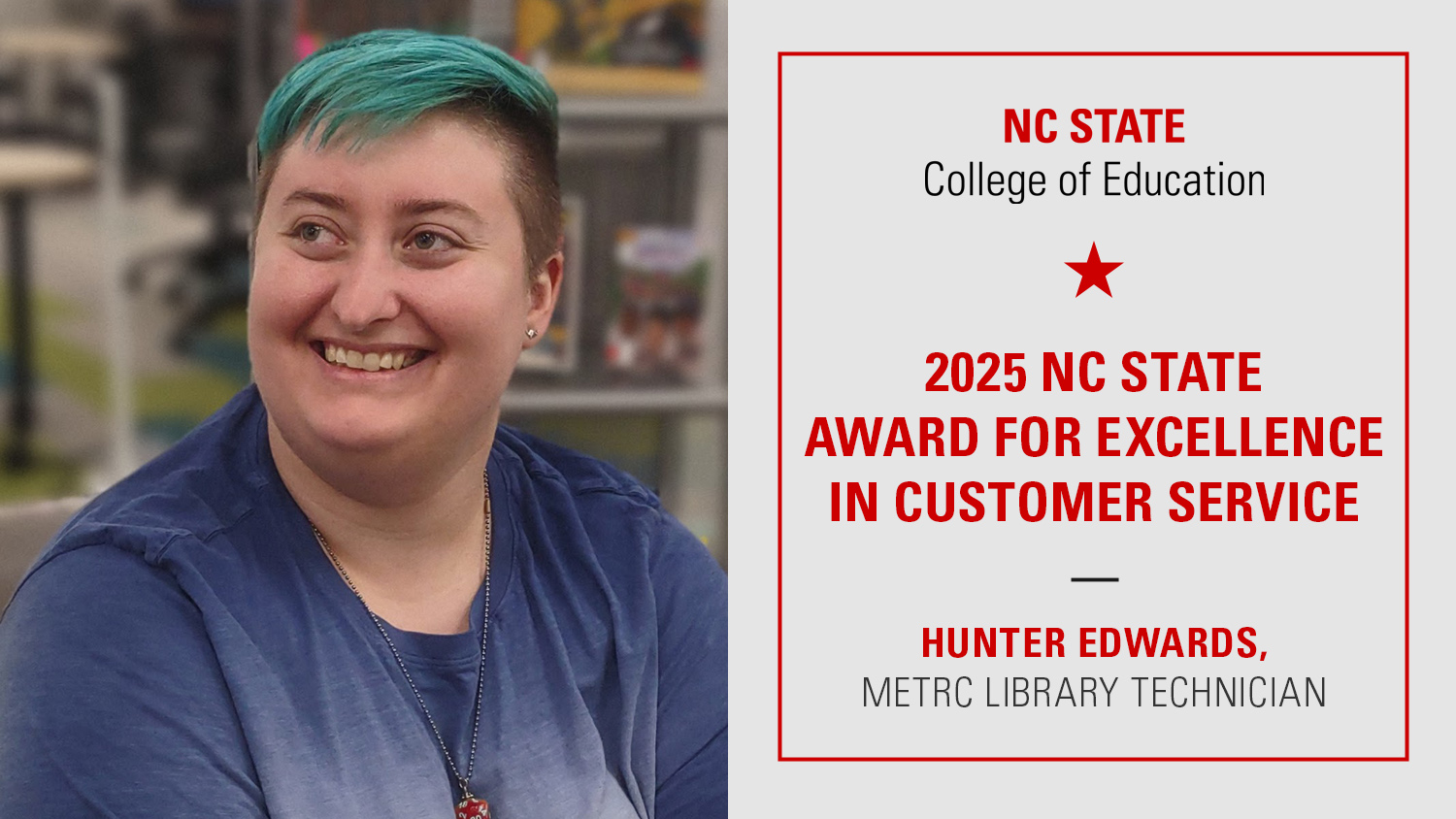Jessica DeCuir-Gunby: ‘Extraordinary Educators Motivate Students to Want to Work Hard and Learn More’

Why did you choose the NC State College of Education?
I began working at NC State directly out of graduate school. It was an easy choice for me because NC State was creating a new educational psychology program. I was excited about the opportunity to help build an educational psychology program and work with young and up and coming scholars.
[spotlight-box label=”” img=”” heading=”Jessica DeCuir-Gunby, Ph.D.” cta=”” url=””]
Title: Head of the Department of Teacher Education and Learning Sciences and Professor of Educational Psychology
Education: Ph.D. in Educational Psychology from the University of Georgia; Master of Arts in Educational Psychology from the University of Georgia; Bachelor of Science in Psychology and Spanish from Louisiana State University[/spotlight-box]
Why did you choose a career in education?
Although I wanted to be a psychologist, I knew that I did not want to be a clinician. While a doctoral student at the University of Georgia, the faculty exposed us to a variety of careers that we could pursue, emphasizing academic careers. I participated in a program called Preparing Future Faculty in Psychology where we learned about various types of academic institutions. I knew that I wanted to work at an institution that valued both research and teaching like NC State.
What drew you to your specific field?
I knew that I wanted to be a psychologist when I started my undergraduate program at Louisiana State University. I was not sure of the specific area of psychology I wanted to pursue. I just knew that I wanted to work with African American children. One summer I worked on a research project with a school psychologist involving children with ADHD. I quickly learned that school psychology was not for me. I later took courses on motivation and child development and was fascinated. I just knew that I would eventually pursue my doctorate in developmental psychology. Then I learned about educational psychology which applies motivation, cognition and development to the teaching and learning process. Studying educational psychology would allow me to combine so many of my interests. I knew it was the right field for me.
Why did you decide to pursue a Ph.D.?
I realized that I wanted to pursue a doctoral degree at career day when I was a freshman in high school. The career day speaker, a school psychologist, talked to us about careers in psychology and how a doctorate is needed for advancement in psychology. I decided at that time that I wanted to be a psychologist and that I needed to earn a doctorate.
What are your research interests and what sparked your interest in that topic(s)?
My research interests are race and racial identity, Critical Race Theory, emotions and mixed methods. Race and racial identity development is my main area of focus. I have always been interested in the racial experiences of African Americans and how their racial identity develops within the school context. I learned about Critical Race Theory while in graduate school and began to further explore it as a racial framework while at NC State. I now use Critical Race Theory to frame much of my research on race and racial identity. My work on emotions focuses on the connection to race, particularly emotion regulation during racial situations and coping with racism. Last, as an applied research methodologist, I am interested in writing about how to engage in research. I am particularly interested in writing about mixed methods research studies that focus on issues of diversity.
What is one research project or moment in your academic career that you are particularly proud of?
I have several moments of pride in my academic career. One particular source of pride is a journal article that emerged from work on a National Science Foundation-funded grant, Nurturing Mathematics Dreamkeepers, with Patricia Marshall and Allison McCulloch. The article focuses on how to create team-based codebooks for coding interviews. The article is highly cited by scholars in various disciplines, not only in education, as well as by scholars around the world. An honorable mention would go to a book chapter that I wrote for an edited book on Critical Race Theory in education. The chapter told the story of Josephine DeCuir, one of my ancestors, and her fight to receive equal racial treatment on a steamboat (Hall v. DeCuir, 1877). Her U.S. Supreme Court case is a precursor to Plessy v. Ferguson (1896) and is mentioned in the landmark decision.
What do you most hope to accomplish in your role as the department head of TELS?
There are several goals that I would like to accomplish as the department head of TELS. I particularly would like to address issues of equity and diversity. Specifically, I want to focus on the recruitment and retention of students of color in programs within the department. I also want to better infuse equity and diversity within the undergraduate and graduate curricula. The ultimate goal is to not only produce more educators of color, but culturally relevant educators that are prepared to teach in culturally diverse contexts.
What do you think makes someone an “extraordinary educator?”
Extraordinary educators are knowledgeable about the subject area. They are excited about learning and this excitement is contagious. They build community in their classrooms by caring about their students’ well-being and affirming the knowledge that students bring to the classroom. Extraordinary educators motivate students to want to work hard and learn more. They create culturally relevant tasks that students can apply to their personal and/or professional lives.
- Categories:


